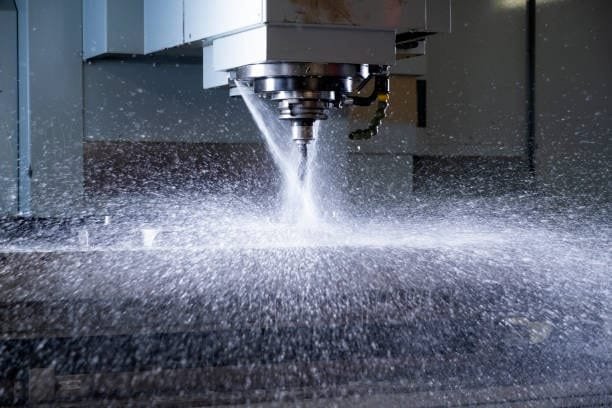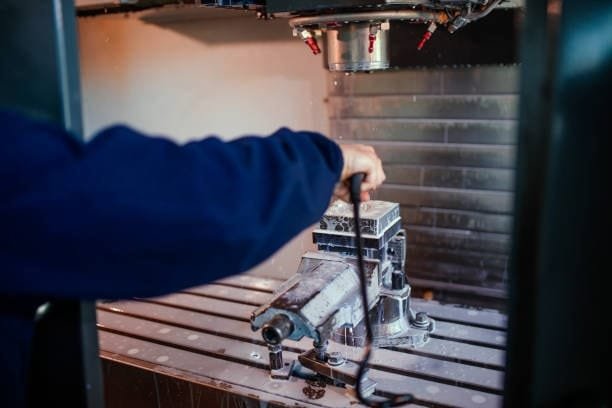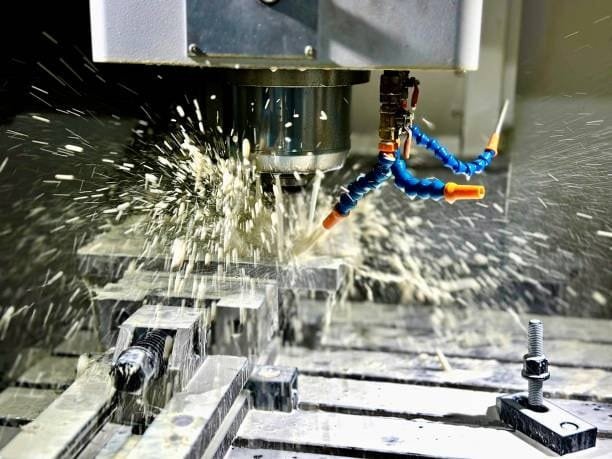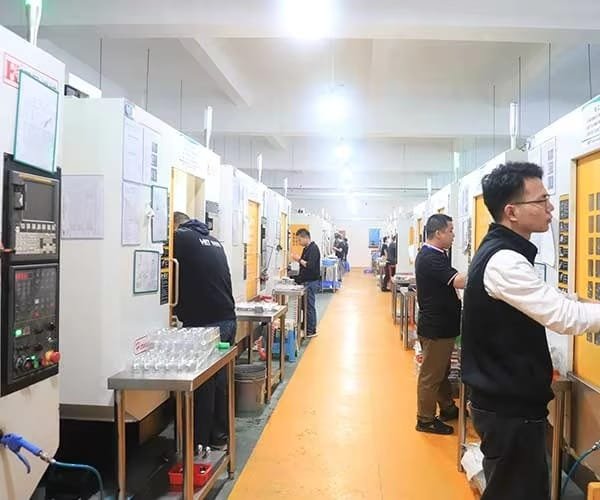Introduction
By providing exact, quick, affordable solutions for building intricate parts and components, CNC (Computer Numerical Control) machining has transformed modern production. Contracting CNC machining services can help simplify manufacturing and raise product quality regardless of your size—start-up, small business, or major company.

From its advantages to choosing the next project, correct service provider, common challenges, and future trends cnc programming services, this page will cover all you need to know about contracting CNC machining.
What is CNC Machining?

Pre-programmed computer software under CNC machining is a manufacturing technique whereby factory tools and machinery are controlled tight tolerances. Automating milling, turning, grinding, and drilling guarantees accuracy and repeatability in manufacturing operations experienced machinists.
Key Components of CNC Machining

- Core equipment used in machining operations is a CNC machine.
- Designed parts are created using CAD/CAM software and then machine-readable code is produced.
- Materials are shaped with several tools including lathes, end mills, and drills.
- Workpiece: The starting point turned into a finished good.
Why Businesses Contract CNC Machining Services
Many companies choose outsourcing CNC machining because of its many capabilities and several benefits.
1. Cost Savings
Establishing an internal CNC machining plant calls for a large outlay of machinery, maintenance, and trained labor leading provider. Hiring these services helps companies to better allocate their resources and reduces these expenses.
2. Access to Advanced Technology
Modern tools and software used in CNC machining service providers guarantees great accuracy and efficiency. Outsourcing allows construction companies to use cutting-edge technologies without making large capital outlay.
3. Improved Production Efficiency
Outsourcing lets businesses concentrate on their core competencies while professionals manage the complex manufacturing process optimal performance, so lowering lead times and raising general productivity.
4. Scalability and Flexibility
Manufacturing needs vary; contracted CNC machining services provide the flexibility to scale production up or down as needed without the weight of maintaining idle equipment.
5. Expertise and Quality Assurance
Professional CNC machining firms guarantee consistent business forward, high-quality production by means of qualified technicians and quality control systems.
Industries That Benefit from CNC Machining Contracts
CNC machining is used in many industries and different sectors to create exact and robust components.
1. Aerospace
High-strength, lightweight components for aircraft and spacecraft depend on CNC machining expensive equipment.
2. Automotive
From engine components to bespoke parts, CNC machining guarantees great consistency reliability and accuracy in vehicle manufacture.
3. Medical
Extreme accuracy that CNC machining provides is what many medical devices, equipment and implants demand.
4. Electronics
Electronics’ circuit boards, connectors, and enclosures are produced using precision CNC machining.
5. Defense and Military
Manufacturing weapons, military vehicles, and specialized tools from the defense sector depends on CNC machining.
How to Choose the Right CNC Machining Contractor
Choosing a CNC machining service provider calls for thorough research to guarantee accuracy, economy, and high quality parts.
1. Experience and Expertise
Search for a contractor having experience in your field of work. Experience points to dependability and knowledge of managing challenging initiatives.
2. Capabilities and Technology
Verify the provider has the most recent tools, software, and CNC machines required for your project.
3. Quality Control Measures
To guarantee product accuracy, find out if the business adhers to rigorous quality assurance procedures including ISO 9001 certification.
4. Material Selection
To satisfy your production requirements, the appropriate contractor should have access to a broad spectrum of materials including metals, plastics, and composites.
5. Cost and Pricing Structure
Compare prices among several providers, but never sacrifice quality in order to save money. Key are open pricing and sensible cost-cutting ideas.
6. Lead Times and Turnaround
To be sure the contractor can satisfy your deadlines, assess their production capacity and turn-around times.
7. Customer Reviews and Reputation
To evaluate the company’s dependability and standing, read reviews, get references, and check testimonials.
Common Challenges in Contracting CNC Machining
Outsourcing CNC machining has certain difficulties even if it has benefits. Knowing these possible problems will enable companies to decide with knowledge.
1. Communication Barriers
Production mistakes can result from client and manufacturer misinterpretation. Essential are regular updates and well defined criteria.
2. Quality Control Issues
Should the contractor neglect appropriate quality checks, you could get components falling short of standards. Always confirm their systems of quality assurance.
3. Hidden Costs
Certain providers could have extra expenses not stated clearly at first. Before signing a contract, make sure you are aware of the whole pricing policy.
4. Supply Chain Disruptions
Raw material sourcing or transportation delays can affect manufacturing plans. Select a supplier whose supply chain is consistent.
5. Intellectual Property Concerns
Third-party manufacturers running proprietary designs run the danger of intellectual property theft. Work with respectable businesses with confidentiality agreements available.
Conclusion
Contracting CNC machining services is a strategic decision that can significantly impact your business’s efficiency, cost savings, and product quality. By selecting the right provider and staying informed about industry trends, businesses can leverage CNC machining to stay competitive in an increasingly demanding market.

